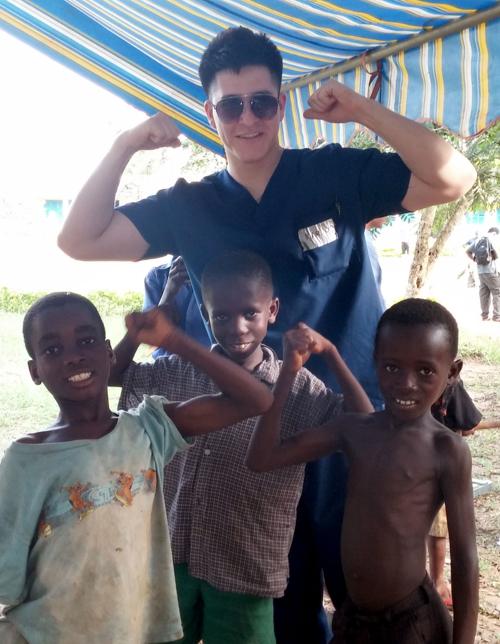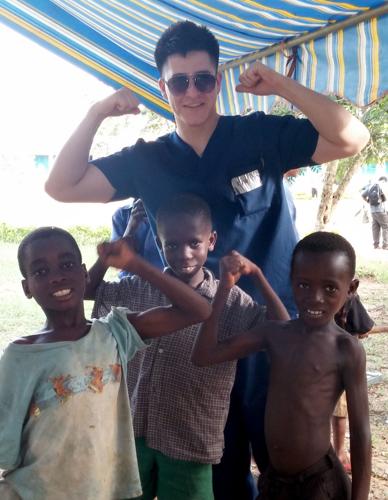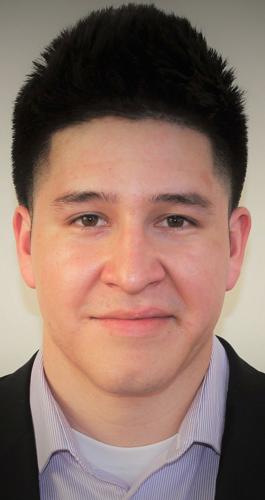Marcos Morenoтs grandmother, Irene тHoneyт Moreno, worked with other members of the Pascua Yaqui Tribal Council to secure land for their tribe in 1964 and federal recognition in 1978, aided by then УлшжжБВЅ Congressman Morris тMoт Udall.
More than five decades later, Marcos Moreno has won a prestigious national award bearing the late congressmanтs name.
The scholarship from the Morris K. and Stewart L. Udall Foundation, along with a $7,000 award, recognizes the achievements and potential of undergraduates committed to the issues of the environment or, in Morenoтs case, tribal health care.
тI feel like this is as much a recognition for my tribe as it is for me,т says Moreno, a pre-med student at Cornell University.
The 22-year-old Moreno focuses on neuroscience and human development at the Ithaca, New York, school. Heтs less concerned about final exams as he is about two research projects heтs taking part in. One project looks at childhood cognitive development; the other is a study combining neuroscience and environmental psychology.
People are also reading…
Health care has in recent years begun to focus more on the link between psychological issues and physical health, he says, and that matches his interests.
тMental health was always something I took a liking to, something I always wanted to push and establish.т
He is matter-of-fact when discussing these projects, and he doesnтt play up his achievements prior to being named a Udall scholar.
Before this recognition, he co-founded a medical brigade chapter to do work in Africa and worked on a public health project for his tribe laying the groundwork for more independence in the administration of health care on the reservation.
Morenoтs initiative and his potential caught the eye of the Udall Foundation, based in УлшжжБВЅ, which picked Moreno to be one of only five students in the nation chosen for the health-care award.
According to Cornellтs Gary Evans, Elizabeth Lee Vincent professor of human ecology and the lead scientist on the cognitive development study: тOne of the things тІ about Marcos that has really struck me is тtenacity.т I donтt think Iтve ever heard him express, in any way, тcanтt.т He just really believes that it can be done. Heтll find a way to do it.т
Moreno does not feel out of place in upstate New York. He credits the support of his community for that.
тItтs been my motivation for a lot of things Iтm doing. тІ Theyтve always told me Iтd do well, and it really just instilled confidence in me. How I think of myself is kind of how they viewed me.т
That support included funding from the Pascua Yaqui Tribal Council for education, sports activities and attendance at a national conference for young leaders on the other side of the country when he was 12, which, Moreno says, тset in motion all the traveling I would do later.т
Itтs an exciting time for Pascua Yaqui youth, he says, highlighting the tribeтs education efforts.
тItтs all about trying to get students to go out and do all these things,т he said. тWeтre at that growing point where now weтre going to see a lot more students making it to universities all over the country. Itтs really cool to be a part of that.т
The significance of winning a scholarship named after Mo Udall, who worked on behalf of the Pascua Yaqui as far back as the 1960s, is not lost on Moreno.
тHe put us on the map, quite literally. Without him, weтd be one of the other hundreds of tribes waiting to be recognized.т
тItтs kind of funny,т Moreno continued. Udall тwas responsible for getting our tribe recognized years ago, and here I am, 40 to 50 years later, and heтs still helping us get recognized, putting us on that national front.т
Moreno says he appreciates his pre-college education, starting with his teachers at the Head Start program on the reservation.
тI remember because I always see my (Head Start) teacher. She gets really emotional sometimes. тІ The teachers were really good about giving me a sense of confidence to do whatever I wanted or be whatever I wanted.т
He wasnтt terribly studious for most of his time at Pueblo High, but something changed in his senior year.
тI donтt know what light switched on,т he says. His teachers and Advanced Placement classes тset the pace.т
That pace first carried him in 2013 to St. Johnтs University in New York on a full-ride scholarship. In 2014 he transferred to Cornell after the university reached out and gently admonished him for not finishing his application for the school.
Udall scholarships open doors for young academics.
тWeтre talking national competition. This isnтt, тYouтre a good high school studentт or тYou got into Ivy League.т Itтs just a much bigger, wider appreciation and acknowledgment of his abilities, what heтs already achieved and his potential,т says professor Evans.
For Moreno, the recognition taps him into a wider community of scholars in his field and enlarges the platform for the work he wants to do.










